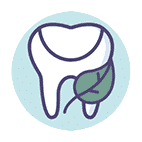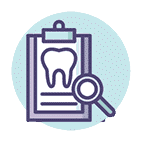Kids & Dentistry
Laying The Foundations of a Healthy Dental Life
There’s a fantastic opportunity to share Total Health Dentistry lessons with your children at a young age.
Teaching your children important lessons regarding nutrition and wellness will help them build habits that will continue throughout adulthood.

Total Health Resources for Your Children
Here at Sante Dental we would like to provide you with peace of mind and the confidence in knowing that we are here to answer all your questions.
This page breaks down different Total Health Dentistry dental development landmarks for your children aged 0 to 6 years.
3 Childhood Champions
From the moment of birth to age 3 is the most critical development period in one’s life outside of the womb. Ages 4 to 6 are an especially important period for any airway, nutrition and structure adjustments needed. Key dental developmental landmarks include latching for breastfeeding, the formation of adult teeth, and a healthy sleep routine.
Below are the 3 top areas affecting a child’s dental development and how parents can provide the best care to support a child’s Total Health Dentistry.

Nursing
The emotional, behavioural, mental and nutritional benefits of nursing are greatly important, but the dental developmental benefits of nursing are simply extraordinary.
Mother’s can also protect their nursing infant by eating “inflammation-free” to avoid any damage to baby’s sensitive stomach. Try avoiding highly processed foods, vegetable cooking oils (canola oil), industrial animal meat, high-coloured foods, and sugary drinks and snacks.
Benefits of Nursing:
When you nurse your baby, it actually helps your baby’s tongue, cheeks, lips, inner ear muscles to work together which choreographs proper shaping of the arches. Although you can’t see it, nursing also helps to stimulate and strengthen future teeth.
Lastly, nursing can minimize the risk of ear infections for your baby since it promotes optimal ear drainage. Think of nursing as one big workout for your baby’s muscles and face.
Structure For Baby's Mouth
Structure is a pillar of Total Health Dentistry and it begins earlier than you may think. Vital nutrition and digestion for babies and young children will go a long way, but it’s not exclusively what your children are eating that affects their dental development.
Habits To Watch For:
We need to stop putting our babies’ cutlery in our mouths. When we do this, we run the risk of transferring any cavity-inducing bacteria into their mouths. Ensure they have their own set of clean utensils for each meal.
If you notice your child has a thumb-sucking habit, your child is likely compensating for something else. This could be for comfort, airway opening issues, or cranial or ear pressure relief.
Constantly having a soother in their mouth can prevent dental arches from developing. The longer they continue to use the soother, the more chance overcrowding of the teeth.
Both thumbsucking and soother sucking are habits that should be replaced while children are young to avoid any issues in later life.
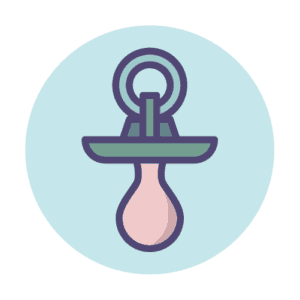
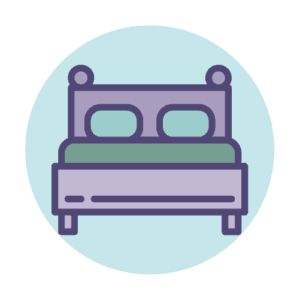
Sleeping
Watch your babies while they sleep. This is more than a moment of peace for parents, but an opportunity to observe another pillar of children’s Total Health Dentistry: the airways.
If your young child is snoring, grinding their teeth, or over-extending their neck, there is an underlying issue that can be improved.
Things to Consider:
Your child’s sleeping quarters should be quiet, calm and peaceful, even in early years, in order to recharge properly.
Snoring, teeth grinding, and over-extended necks suggest deeper issues with a child’s airway. You will need to consult your family MD to determine if your child has central or obstructive sleep apnea.
Be sure to have their tonsils and adenoids checked, and if your child has an allergy, learn how to avoid the irritation, prevent reactions, and how to treat them.
Childhood Focuses

Ages 0–3
The most critical development period in one’s life, outside of the womb, is from ages 0–3. At 3 years of age, the most important dental development happens: the formation of teeth. Total Health Dentistry may begin in the womb, but Sante Family Dental recognizes that infant dental care is serious business for parents.
Nutrition and digestion are extremely important for children at this age, contributing to the strength of adult teeth later in life. Nursing your child also contributes to the future oral health of your child.

Ages 4–6
Throughout ages 4–6, you’ll want to focus on your child’s breathing habits. Oxygen is the most vital nutrient our bodies need. If our bodies aren’t getting the proper nutrients, growth and development can be affected.
Introducing Total Health Dentistry to a child at this age means ensuring that their airways are unobstructed, especially during sleep. While childhood sleep apnea is rare, it should be given ample attention.

Ages 7–19
Airway-focused braces are a great method to ensure patients enter adulthood with straight, healthy teeth and open airways.
Frequently Asked Questions
Dental Care for Kids FAQs
Parenthood may be different for everybody, but there are common dental landmarks for all children. The Sante Family Dental team is here to help answer some of the most frequently asked questions regarding dental development in the early years.
We’ve assembled some of our most Frequently Asked Questions for parents with babies, young children, and teens for their Total Health Dentistry.
Kids Aged 0 to 3
Yes. Nursing actually helps your baby’s oral health development. It’s a great work out for the tongue, cheeks, lips and inner ear muscles. This helps for proper shaping of the arches, future teeth development, and even ear drainage, which can prevent ear infections.
This is a bad habit that needs to be broken.
The reason is that if you’ve ever had gum disease or a cavity, those bacterias are likely still living in your mouth. This means you can potentially pass it on to your baby. Use a separate spoon to taste test your baby’s food.
When the teeth are developing, especially around 6-18 months, it’s not uncommon to see a bluish soft-bubble form around your baby’s tooth. It’s likely an eruption cyst.
Take your baby to the dentist. The dentist will either drain it or allow it to pop naturally when the tooth fully erupts. Get in touch with us if your baby is experiencing an eruption cyst.
Other than wisdom teeth, adult teeth actually begin to develop right away, between 0 and 3 years of age.
Kids Aged 4 to 6
Giving your child a sugary snack isn’t a bad thing, so long as it’s limited and during the right time.
The right time is when your child’s salvia is most active, when they eat a meal. Salvia helps to break down food and sugars, which decrease the build-up in their mouth and on their teeth. This helps to prevent cavities and other oral health issues from developing.
There are new options available to assist with develop of your child’s teeth. Using “pre-aligners”, dentists can now assist with the straightening of the crooked muscles that will cause crowding in your child’s mouth.
“Myobraces” retrain muscles that have become crooked due to compensating for other problems. This can help to either prevent the need for braces or to reduce the time and cost of braces in the future.
There are 4 reasons babies suck their thumbs and soothers:
- Comfort and endorphins
- Airway opening issues
- Relief of cranial strain
- Relief of inner ear pressure
If you’re finding it difficult to break your baby’s habit after the first 3 years of development, you may want to consider booking an appointment with your MD or ENT (Ear, Nose and Throat) specialist.
Snoring, grinding of the teeth, or even tilting their head from one extreme to the other can be a sign of airflow problems such as—in rare cases—sleep apnea. You should take your baby to your pediatrician for a proper diagnosis.
It’s important to understand your child’s sleeping behaviours between the ages of 2 and 3 and especially between 4 and 6.
Kids Aged 7 to 19
From kid to teenager, it’s not uncommon to have stained teeth, usually looking yellow or darker than normal. These stains are generally just surface stains and can be easily whitened at home.
A great DIY whitener is activated charcoal and water. All you do is create a paste with a whip cream consistency, then brush it away. Plus, if your kids make a mess with it, it washes out of all clothing!
Although many use hydrogen peroxide to whiten their teeth—and it works—we suggest using carbamide peroxide if you can. Be sure not to go over 10% of concentration for carbamide, and not over 8% for hydrogen.
If you have enough room in your mouth for your wisdom teeth to grow in without disrupting your airway and leaving you more than enough room to clean around them for the rest of your life (70-80 years!), then no, you don’t necessarily have to have them removed.
However, this is uncommon in this day in age. In most cases, our jaws simply just don’t grow large enough to allow our wisdom teeth to come in well enough to clean them. So, yes, in the majority of cases, you will have to have your wisdom teeth removed at some point in your life. We’d highly suggest having this done before your wisdom teeth are fully developed to reduce pain and discomfort.
While in some case it makes sense to remove all four wisdom teeth at the same time, it’s actually easier on you to have the lower wisdom teeth removed earlier, whereas the upper wisdom teeth are better to remove later.
Lower wisdom teeth generally are easier to remove between 14-16 years old, before the roots have fully formed. Upper wisdom teeth are easier to remove in your early 20s with minimal recovery time.
To put it simply, airway focused braces are where we work to straighten your teeth as well as open the airway by addressing the underlying issue of your crowded teeth.
This is most often done in two phases.
- Using “pre-aligners”, we address any number of muscles or habits that are causing the crowding. We also address nutrition, looking at foods that could cause low-grade inflammation of the adenoid, tonsils and sinuses (among other things) that could be causing your muscles to compensate.
- Once we’ve addressed the underlying issue, we’ll reassess your airway, bite and appearance of your teeth. If all these check out, you don’t need braces! However, if we still want to improve the bite and overall appearance of your teeth, we’ll move forward with braces knowing that we’ve already corrected the underlying issue.
